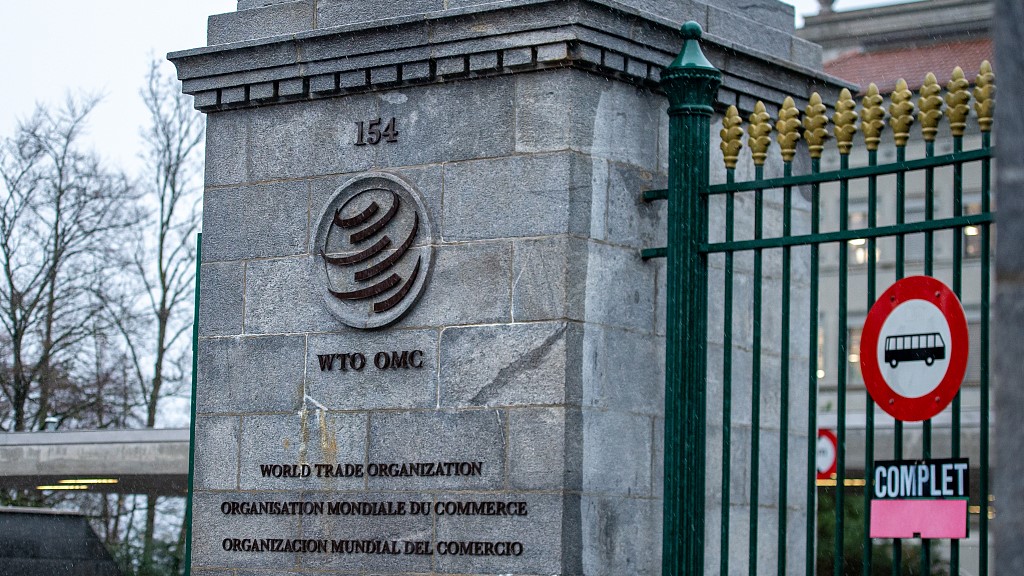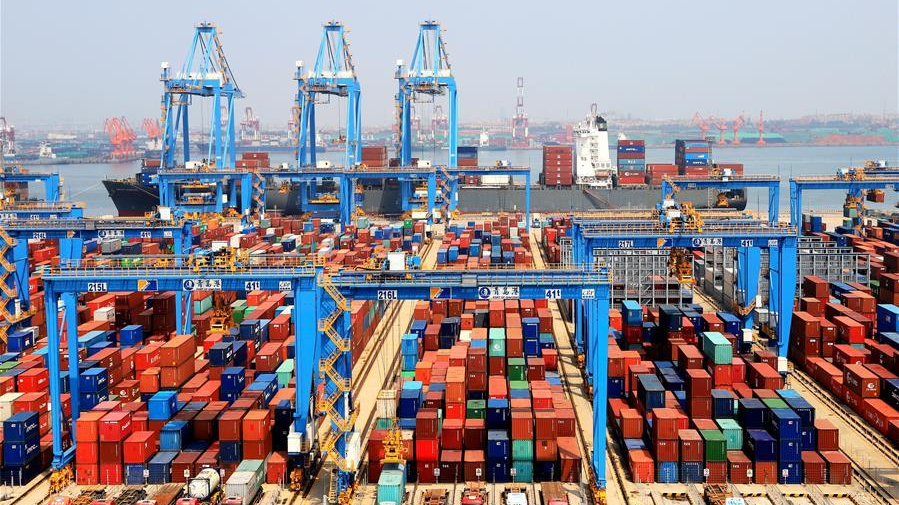
The World Trade Organization headquarters in Geneva, Switzerland, December 11, 2019. /CFP
The World Trade Organization headquarters in Geneva, Switzerland, December 11, 2019. /CFP
Editor's note: Hafijur Rahman is a columnist and Security and Strategic analyst, working in a prominent Strategic Studies Center in Bangladesh. The article reflects the author's opinions and not necessarily the views of CGTN.
This year's December 11 marks the 21st anniversary of China's entry into the World Trade Organization (WTO). Dating back to about 22 years ago, in his speech on China Trade Bill hailing China's entrance into the WTO in 2000, former U.S. President Bill Clinton insisted that attempting to curtail China's economic growth would only serve to confirm the Chinese people's worst concerns about the United States, notably that the U.S. did not "want their country to assume a respected place in the world."
Less than two decades later, Clinton's prescient discernment appears to have started taking on a character as the United States has continued to throw volley after volley of tariffs, export controls, investment blocs, entity blacklisting, visa limits, and much more against China to stifle its economic and technological race. And all have been done out of a zero-sum calculus vis-à-vis China to maintain its hegemonic tech and economic primacy.
Not surprisingly, to justify its persistent strategic assaults against China and camouflage the wider agenda to contain China's economic rise, Washington has long asserted its restrictionist actions as a "policy of compellence" toward China – inducing a well-defined change in China's state behavior. In this case, it continues to pin blame on China's unique political and economic model that, over the last four decades, has transformed China into an economic powerhouse and steered the country from one of the impoverished nations to the world's second-largest economy.
In Western narratives, the Chinese economic and political model is widely questioned as being irreconcilable with Western values. Western political leaders and analysts often say China's accession to the WTO and subsequent international trade integration was paved on their assumptions that economic growth and increasing prosperity would cause China to move toward Western self-defined "liberal" model for both its economy and its politics.
Firstly, these assumptions reflect gaps in their knowledge of China's history, culture, and language in which China's model is largely rooted. In an utter show of parochiality, the contemporary Western narratives both about China and its model tend to be confined within the discussions of China over the last several decades or a century at best. Its thousands-year-long dynamic civilization of which traits are overwhelmingly embedded across its political, cultural, and economic spectrum is largely ignored in the West. And because of its deep historical, social, and cultural roots, China has a distinct political and economic model, with a strong commitment to enhancing its citizens' economic welfare.
Secondly, its cultural and institutional legacies are conducive to the quick rise of its economy as has been demonstrated since the policy of reform and opening-up in 1978. Over the past 40 years, China has lifted nearly 800 million people out of poverty, accounting for more than 75 percent of global poverty reduction in the same period. China accounted for 11.4 percent of the global economy in 2012, and today that figure has increased to 18 percent, second only to the U.S. And it is the very Chinese economy model that spawned the great Chinese manufacturing boom and technological triumph, bringing unprecedented cost-efficiency and eventually contributing to hundreds of poor and developing economies by paving their access to cheaper technologies and products.

An automatic container dock in Qingdao, east China's Shandong Province. /Xinhua
An automatic container dock in Qingdao, east China's Shandong Province. /Xinhua
So, over the last 40 years, more specifically after the accession to the WTO, China has changed substantially across every dimension under its unique model rooted in its cultural and institutional legacies and nurtured by robust state capacity and efficient system. If anything hasn't changed, it is Western intransigence on their so-called universal values-based model and binary mindset while appraising the non-Western alternative governance or economic models.
China's model, though, is unique to its distinct cultural and traditional roots but, at the same time, is highly tolerable and open to even ideologically or politically diametric systems elsewhere. Its trade and investment relations with more than 140 countries and regions across the world bear truth to its model's exceptional aspect of compatibility and flexibility to the pluralistic world.
The West, in addition, frequently complains about the "exceedingly powerful presence of political elites" in its economic and governance model. But, a new study by Tomas Casas and Guido Cozzi from the University of St. Gallen in 2022 has empirically shown that, much like other East Asian countries, China's strong state capacity has largely helped foster and coordinate its economic miracles over the last four decades.
According to the Elite Quality Index (EQx) which is developed by the authors to measure and rank the value that national elites create for a country, China ranks 27th (out of 151). And in terms of political elites' contribution to China's economic development and their role in income redistribution and in public security and welfare, China ranked sixth and ninth, respectively. However, it also placed sixth in "creative destruction," indicating that, contrary to what some Western economists may believe, its elite-oriented system is much more capable of adjusting to shifting external conditions.
While writing on the issue in an article in the Project Syndicate, Prof. Zhang Jun, Dean of the School of Economics at Fudan University wrote, "mainstream economic theory prevalent in the West cannot explain China's unique growth model," pointing to the fundamental reasons for Western incapacity to comprehend China's economic model. He further observed that while many countries today struggling to stimulate growth due to regulatory capture, endemic corruption, and bureaucratic inefficiency, "China's trajectory highlights the power of a capable, dynamic political elite to drive prosperity – as well as the danger of downplaying the crucial economic role of a strong, efficient state."
(If you want to contribute and have specific expertise, please contact us at opinions@cgtn.com. Follow @thouse_opinions on Twitter to discover the latest commentaries on CGTN Opinion Section.)